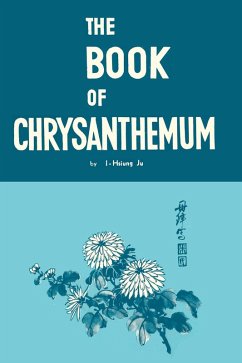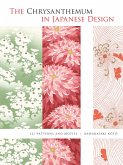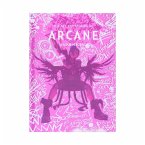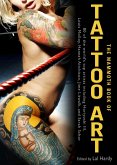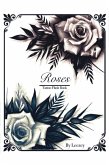The first step in Chinese brush painting is learning the technique. The Book of Chrysanthemum is designed as a step by step procedure to enable the student to learn the technique in a more detailed and organized manner. It is a practical handbook for the student of Chinese brush painting and is one of the four books in Prof. I-Hsiung Ju's "Four Gentlemen" - Bamboo, Orchid, Chrysanthemum, and Plum - series.
This instructional book for Chinese brush painting on Chrysanthemum includes an introductory of and appreciation for the Symbolism in Chinese Art, discussion on the ways of holding brush and using ink, the basic exercise on painting Chrysanthemum Flowers stems, branches, veins and leaves. It gives step by step procedures for making the strokes, lines, contours and shapes in a Chrysanthemum painting. The illustrations and instructions in the book work together side by side for general readers as well as painting students.
Prof. I-Hsiung Ju, in this instructional book for Chinese brush painting on chrysanthemum, first gives a talk on symbolism in Chinese art, then on the proper way of holding the brush and using the ink. In Part I, he gives detailed lessons on strokes and on the ways of holding brush and using ink. Next in Part II, you get the basic exercises on painting a Spider Chrysanthemum, learn the importance of the Blossom, and steps in painting outlined Chrysanthemum Flower. In Parts III - V, the author instructs how to paint Chrysanthemum leaves, stems and branches, as well as veins in both roundness and perspective outlined styles. The illustrations and diagrams are carefully arranged throughout the entire book.
The Book of Chrysanthemum captures the step-by-step brush painting lessons that have been especially designed by the masters to introduce fundamental methods of brush painting in a progressive and interactive manner. It further develops basic methods, like the painting of the "horn of the deer" of the bamboo, into the method of painting the stems and branches of the chrysanthemum. New aspects are developed from the old. And after the mastery of the old, newer aspects will be introduced. The process of Chinese painting is evolutionary. But, it is important to know that a complete dedication in mastering each stage is required before a student of Chinese painting can smoothly move on to the next stage.
This instructional book for Chinese brush painting on Chrysanthemum includes an introductory of and appreciation for the Symbolism in Chinese Art, discussion on the ways of holding brush and using ink, the basic exercise on painting Chrysanthemum Flowers stems, branches, veins and leaves. It gives step by step procedures for making the strokes, lines, contours and shapes in a Chrysanthemum painting. The illustrations and instructions in the book work together side by side for general readers as well as painting students.
Prof. I-Hsiung Ju, in this instructional book for Chinese brush painting on chrysanthemum, first gives a talk on symbolism in Chinese art, then on the proper way of holding the brush and using the ink. In Part I, he gives detailed lessons on strokes and on the ways of holding brush and using ink. Next in Part II, you get the basic exercises on painting a Spider Chrysanthemum, learn the importance of the Blossom, and steps in painting outlined Chrysanthemum Flower. In Parts III - V, the author instructs how to paint Chrysanthemum leaves, stems and branches, as well as veins in both roundness and perspective outlined styles. The illustrations and diagrams are carefully arranged throughout the entire book.
The Book of Chrysanthemum captures the step-by-step brush painting lessons that have been especially designed by the masters to introduce fundamental methods of brush painting in a progressive and interactive manner. It further develops basic methods, like the painting of the "horn of the deer" of the bamboo, into the method of painting the stems and branches of the chrysanthemum. New aspects are developed from the old. And after the mastery of the old, newer aspects will be introduced. The process of Chinese painting is evolutionary. But, it is important to know that a complete dedication in mastering each stage is required before a student of Chinese painting can smoothly move on to the next stage.
Dieser Download kann aus rechtlichen Gründen nur mit Rechnungsadresse in A, B, BG, CY, CZ, D, DK, EW, E, FIN, F, GR, HR, H, IRL, I, LT, L, LR, M, NL, PL, P, R, S, SLO, SK ausgeliefert werden.

